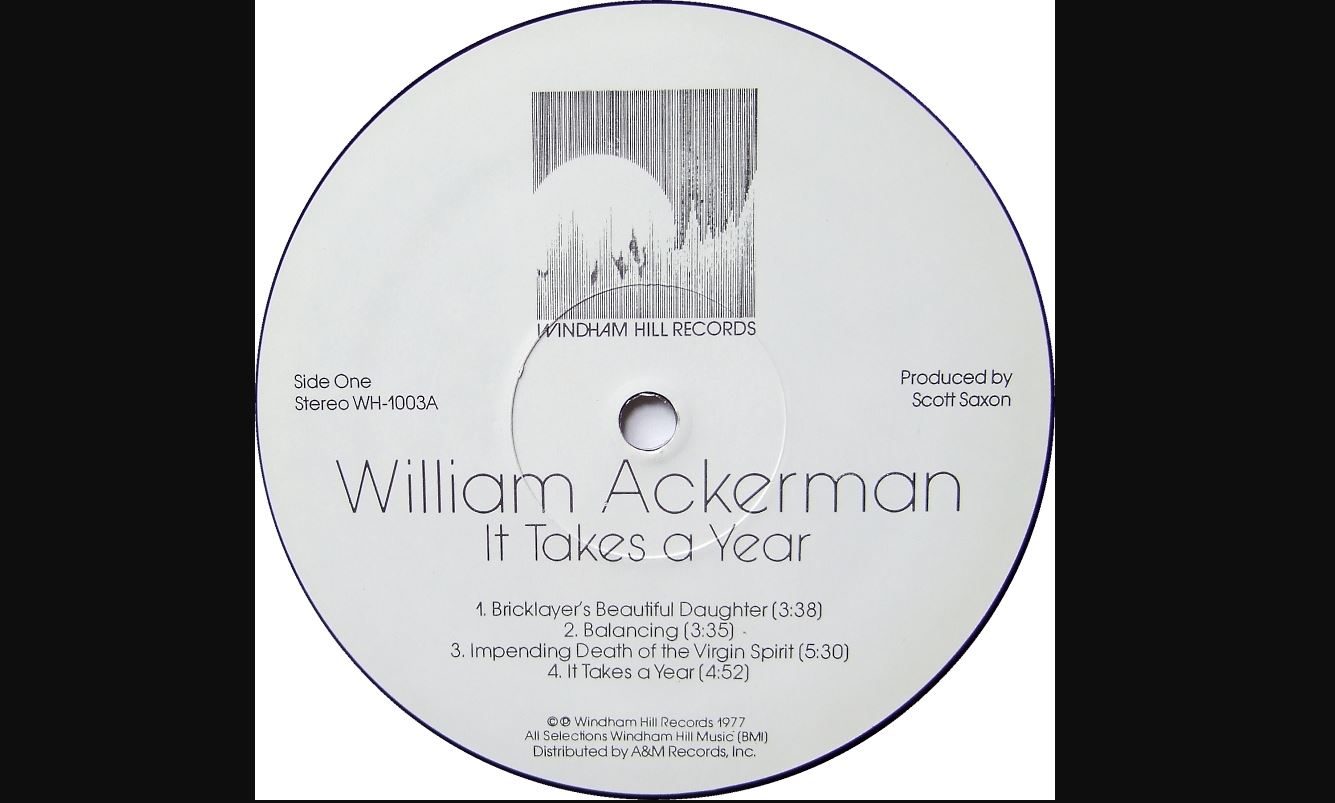Those two words have NEVER been used with me… until I had to. It was the only thing that would work, at scale, with a global team. Being random and abstract is lots of fun, and I still have times for it… but to really manage well, you have to be predictable. In my onboarding speech, I would actually say that… I will be saying the same thing in 6 months I am saying today, and if I am not, you can call me on it. I realized that innovation and creativity are helpful, but at scale, if you want to really get stuff done, you have to be Patient… and manage that way. All day, every day. It is the everyday stuff of actually having 1-1’s that work, having status reports to keep up with stuff, and cascading goals that align you and teams to focus on the right things. It is really boring… and I had to get really good at it to manage… even small groups.
Not being Patient robbed you of the story behind Ackerman’s first album – a complete fluke. After being introduced to the acoustic guitar, he started playing enough that people wanted more. He had a friend that could record the music, another friend that had a print shop, another that could do design, and another that had 300 blank white album covers… the minimum order for a pressing. They were sold in a Palo Alto record shop, and as Will was leaving, he ran into the person who had gotten him into acoustic guitar all those years back… and went in and gave him 10 albums as a Thank you. He neglected to ask Michael what he was doing now. Oh – just running Artist Promotion for Fantasy Records – you know, Creedence’s label? So – he got the 10 into the “right” hands, and the rest was going to be history.
This second album would prove that it wasn’t a fluke, and that he could actually continue to pioneer a completely different way of playing, recording, and releasing music. I picked this song for both the Title and the Song – I thought it was appropriate for management. The fun thing about titles for instrumentals is they need to convey… something… so you can remember them I guess… and maybe what the artist would like you to think of. In this case, I found that the challenge with Patient management was trying to balance what I thought something would take, with what it ACTUALLY took when you got others involved. It was explained to me one time by a peer: If you can get 5 people to do work half as good as you, then you can produce 250% more. The problem with that arithmetic is it makes big assumptions on both the number of people, and the factor 😉
One thing about management that requires being Patient is what I call “Management Hygiene” – otherwise known as how you ACTUALLY do it. My engineering background – well actually my Dad’s – focused on the phrase “Reduce to Practice”. My method seems boring because it is. Task status goes into weekly reports that have 3 headings – Accomplishments, Issues, and Plans. The perfect week is the first was last weeks’ plans, and there are no issues. Other weeks are… different 😉 Over time the discussions become deeper and richer, as the work is managed by the reports. And you can roll up those reports for your boss, repeat. Performance Management then becomes adding a discussion in the 1-1’s – What worked well/didn’t, and what needs to change in the next 2 weeks. And as the supervisor, how can I support those changes. Many start it, and give up when things are going “better”. It is called “Hygiene” because if you don’t pay attention to it, like the virus, chaos is highly contagious.
The constraints of similar work daily drive me crazy… and provide a structure that is necessary for me. I fight it, and embrace it… daily. The innovative/creative spirit is channeled – not controlled – by it. Like a good soccer defense, it makes the plays predictable – you can see where things are going, and then that allows you to actually play into the white space that remains. In one group where we piloted this approach, the direct reports actually took over THEIR 1-1’s. They ensured they were scheduled, took the notes, and documented them in their status reports. And – reported that the overall experience was vastly superior to any other Performance Management system they had experienced. It is boring, and Patient, but the systematic application works. The album title gives the final clue – It Takes A Year. You have to commit to doing this, the same, for at least a year before you and others know it is real. As you continue to prepare and hone your own management, be Patient with yourself also. It is a system, but it requires constant… Balancing.




